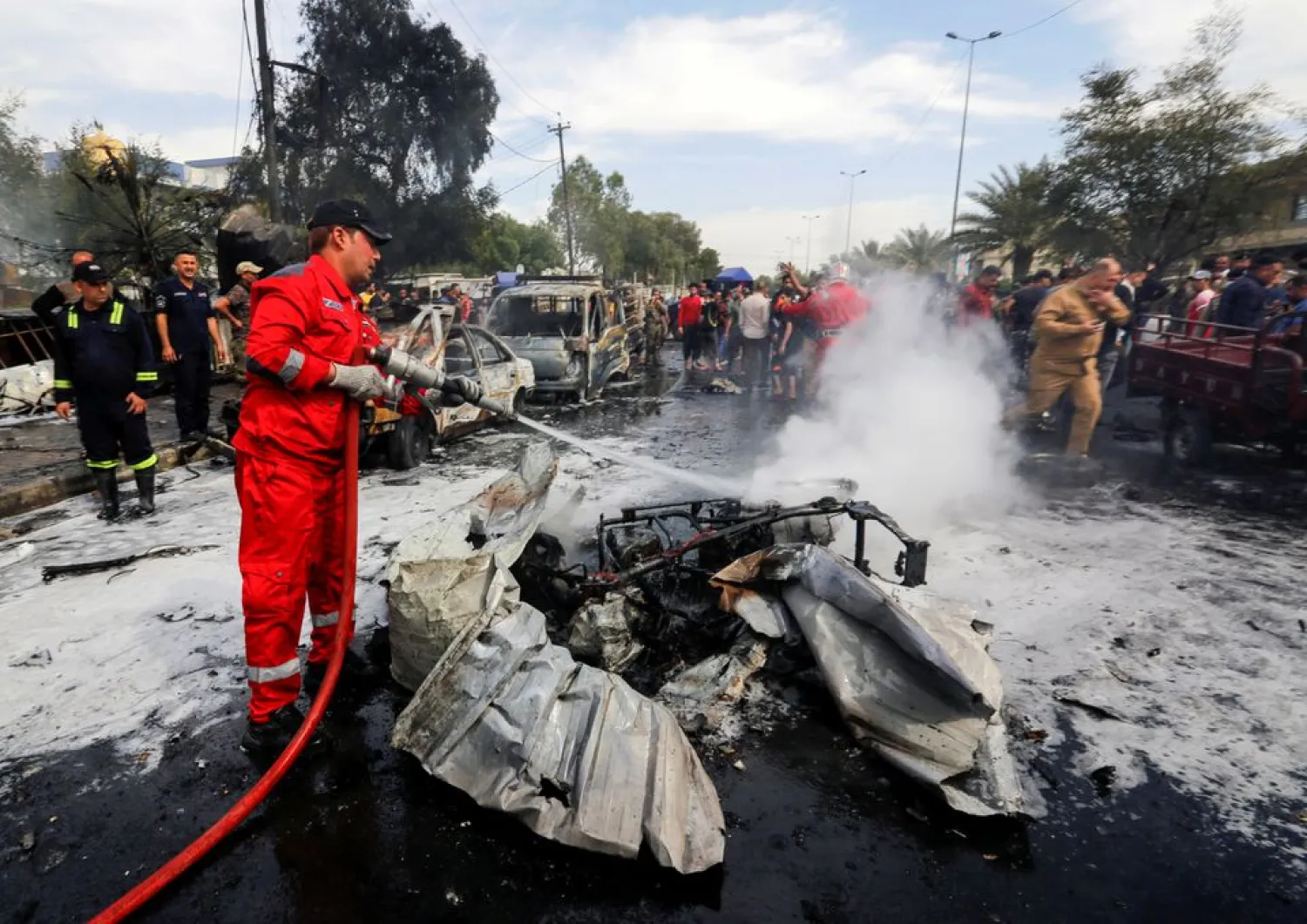A senior Kurdish official has said there are growing indications that ISIS is trying to make a comeback after an uptick in attacks in Iraq.
At least 19 members of Iraqi and Iraqi Kurdish security forces have been killed in recent days across the country, according to military statements and security officials, prompting calls from Iraq's president to remain vigilant to the threat of a resurgent ISIS.
The attacks come after Baghdad's deadliest suicide bombing in three years, claimed in January by the ultra-hardline group, and amid fears that a reduction of US-led forces could upset stability.
"It seems like (ISIS) have re-organized," Lahur Talabany, co-president of the Patriotic Union of Kurdistan party and a former intelligence chief told Reuters in an interview.
Originally an offshoot of al-Qaeda, ISIS took large swathes of Iraq and Syria from 2014, imposing a reign of terror with public beheadings and attacks by supporters abroad.
ISIS was declared militarily defeated in 2017 but has since waged a steady insurgency across parts of northern Iraq and a porous border with neighboring Syria.
Recent months have witnessed more than 25 deadly attacks that Iraqi officials attribute to ISIS militants. The January bombing of a crowded Baghdad market killed more than 30 people.
Talabany said ISIS had never been completely eliminated.
He said there are still several thousand ISIS militants operating in Iraq. Some Western military officials say the number operating between Iraq and Syria could be more than 10,000.
Talabany was specially alarmed at the ability of ISIS to recruit, including through social media. Three weeks ago, 38 ISIS recruits, all Kurds between the age of 20 and 22, were arrested, he said.
"They were about to carry out attacks, they received equipment and bombs and explosives. This was a wakeup call," Talabany recalled.
Talabany's concerns are shared by Iraqi leaders. President Barham Salih said on Twitter last week that the country "cannot afford to be complacent" in combating ISIS militants.
Fears over US withdrawal
A lack of coordination between the Iraqi military and forces belonging to the autonomous Kurdistan region have been blamed for some security failures.
The two sides fought against ISIS but relations have deteriorated since a failed Kurdish bid for full independence in 2017, halted militarily by Baghdad.
Territory disputed by both sides remains fertile ground for ISIS to operate in, Talabany said.
"Lack of coordination between Erbil (the Kurdish capital) and Baghdad has led to ISIS re-emerging and getting stronger and being more operational and capable," he said.
The United States has reduced its forces from around 5,000 that were stationed to help combat ISIS to half that number in the last year.
As the military coalition that Washington leads reduces its numbers in Iraq, NATO is expected to fill the gap in training and coordination with Iraqi forces, but is not mandated to take part in combat operations.
Iran-backed militias, which have become the chief adversary of the United States in Iraq since the defeat of ISIS, demand the complete withdrawal of US forces, something they have pushed for more aggressively since the United States killed Iranian military leader Qassem Soleimani last year.
Talabany said he feared the implications of a US military drawdown. The United States withdrew troops from Iraq in 2011, leaving security gaps that the militants were able to exploit.









